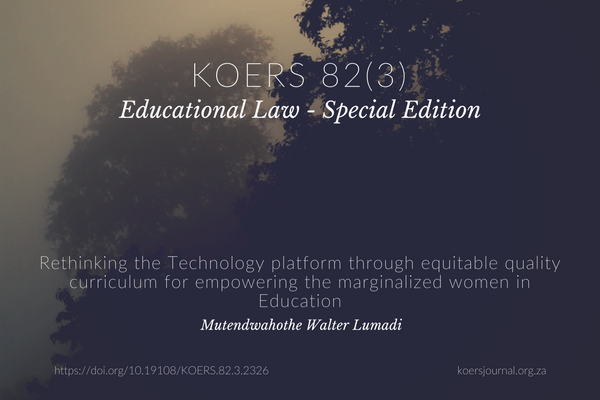Abstract
This study was carried out to explore the impact of understanding the technology platform through equitable education. The technology space; through quality education; is a tool which empowers the marginalised women, with employable skills for better representation in higher education curriculum. A mixed method approach was employed in the study. A sample of three universities was drawn from a population of eight registered State universities in Cameroon. The following research instruments were used as a means to collect data; interviews, questionnaire and document analysis. The data collected was presented and analyzed using, percentages, frequencies, the Pearson Moment Correlation and the Chi-Square (X2) statistical test of independence. It became evident from the findings that the operations of women who did not understand the technology platform left much to be desired because they lacked employable skills. Moreover, they did not significantly impact on the growth of Cameroonian economy due to the numerous operational challenges faced by them over the years. Furthermore, it was also observed that a weak positive relationship existed between public policy support and women entrepreneurs in the country. This implies that, government initiatives and other support services have not assisted them surmount the inhibiting operational challenges. In order to help the unskilled women overcome their operational hardships, it is strongly recommended that among others, the following issues should be in place; relationship between understanding the technological space and female employability skills, capacity building initiatives on equitable quality education for all, provision of effective and realistic support services for marginalised women, promoting of gender neutral environment in all policy measures to help empowered women impact significantly on Cameroonian economic growth and stability.
_31.png) https://doi.org/10.19108/KOERS.82.3.2326
https://doi.org/10.19108/KOERS.82.3.2326

This work is licensed under a Creative Commons Attribution-NoDerivatives 4.0 International License.
Copyright (c) 2017 Wally Lumadi

